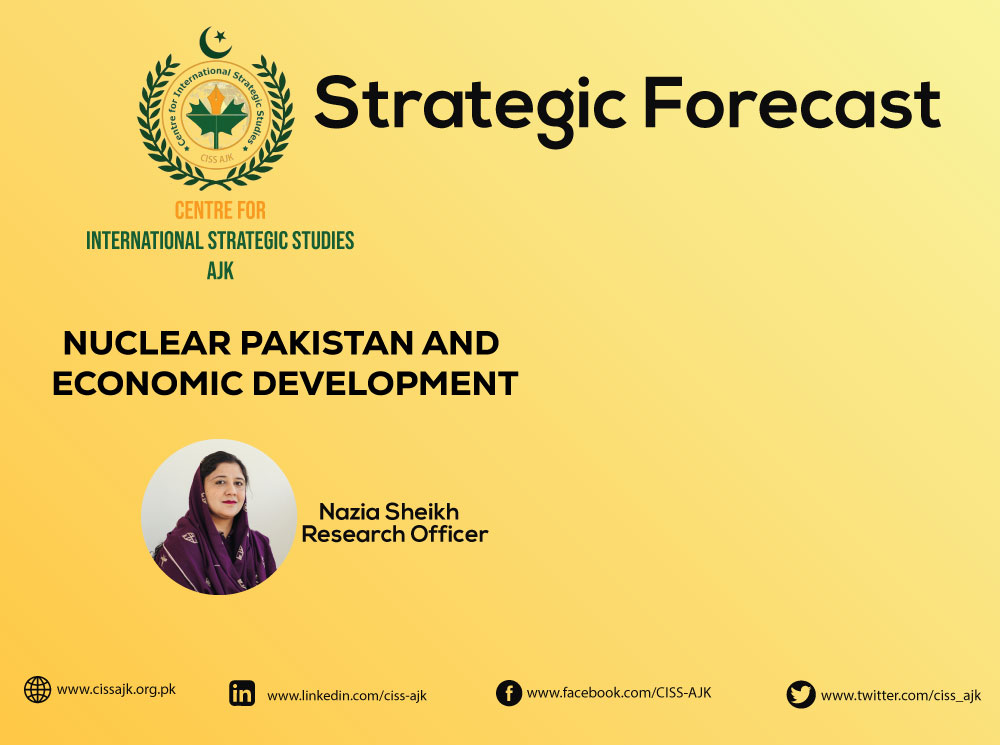Pakistan has a notable history of peaceful nuclear technology use. In addition to its use in agriculture, medicine, electricity, textiles, and many other industries, nuclear technology is crucial to Pakistan’s socioeconomic development. For instance, Pakistan is relying more and more on nuclear energy, which indicates the country’s commitment to the successful implementation of a peaceful nuclear project. Nuclear energy provides a reliable, environmentally beneficial alternative. Pakistan has ambitious plans to use nuclear energy more frequently, and it is currently improving its infrastructure to achieve these objectives.
In 1956, Pakistan formed the Atomic Energy Commission (PAEC) for the development of nuclear technology for peaceful purposes. The first nuclear power plant (NPP) in Pakistan, KANUPP-1, was put into service in 1971 and has a great safety record while producing energy that is clean, dependable, and economical. Pakistan became one of the few nations to use nuclear reactors to produce power. Since then, Pakistan’s national grid now uses more nuclear energy thanks to six additional NPPs, the most recent of which went into operation on February 1, 2023.
Director General of the International Atomic Energy Agency (DG IAEA), Rafael M Grossi emphasized that Pakistan has the technological and engineering capacity to install more NPPs on its national grid during his visit to Pakistan in February 2023.
Under the Nuclear Energy Vision 2050, the government wants to spend more money on research and development initiatives. The Karachi Coastal Power Project is part of this program that aspires to produce 40,000 MW of electric power by 2050.
The economy of Pakistan is heavily dependent on exports, and since agriculture accounts for 70% of those exports, efforts made in this sector directly advance Pakistan’s development.
The PAEC is utilizing nuclear technology to increase effectiveness and production in the agricultural sector by introducing “new crop varieties, pest control technologies, plant nutrition, and water management, animal health and productivity, and food decontamination and preservation.” To accomplish the United Nations Sustainable Development Goal (SDG) of eradicating hunger, the PAEC has created over 125 crop types that are stress-resistant and more tolerant to harsh weather.
By offering plant materials and water-saving technologies, PAEC’s agriculture and biotechnology institutes have created ways to profit economically from saline soil and water-scarce places. Additionally, the PAEC and the International Atomic Energy Agency (IAEA) have worked together for breeding facilities for insects to fight pests and detect and reduce water pollution.
In the field of healthcare, the PAEC is likewise successfully utilizing nuclear technology. More than 0.7 million patients are treated annually in the 19 Atomic Energy Cancer Hospitals (AECH) established by the PAEC.
Pakistan is cooperating with the IAEA to develop its civilian nuclear programs to fight energy shortages.
Together with the Food and Agriculture Organization of the United Nations (FAO), Pakistan and the IAEA collaborate in the country’s cotton and textile industries. Fashion-related textiles like cotton, silk, and linen are used all over the world, and Pakistan’s textile industry makes up 8.5% of the country’s Gross Domestic Product (GDP).
The idea that nuclear technology is a source of destruction is untrue because it has the potential to greatly benefit humanity. Pakistan is even in a position to accommodate other nations in the region from benefiting use of nuclear technology.
Based on its impressive accomplishments in the civil nuclear area, Pakistan is a responsible nuclear state, can profit much from global nuclear commerce, and should be given open access to it. The nuclear vision 2030 and 2050 has put the nation on the right track to realizing its potential, but Pakistan seeks international assistance to unlock its full potential and reap the benefits of nuclear power in terms of sustainable energy, economic growth, medical advancements, agricultural advancements, and environmental protection.
Author: Nazia Sheikh
Email: Nsheikh536@gmail.com
Bio: Nazia Sheikh is a Research Officer at Centre for International Strategic Studies, AJK. Her research area is Arms control and disarmament.



